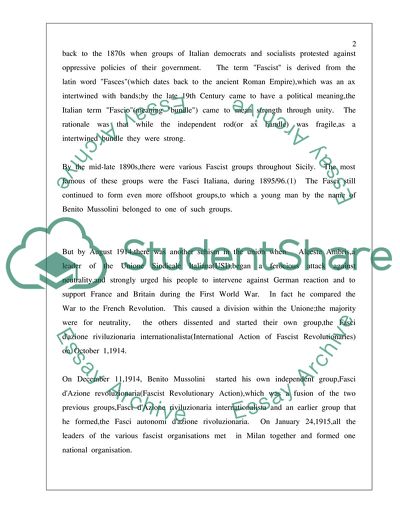Cite this document
(Mussolinian and Fascist Italy During 1930s-World War Two Term Paper, n.d.)
Mussolinian and Fascist Italy During 1930s-World War Two Term Paper. Retrieved from https://studentshare.org/history/1713489-would-it-be-more-appropriate-to-talk-of-a-mussolinian-italy-than-a-fascist-italy-during-the-1930s-and-world-war-ii
Mussolinian and Fascist Italy During 1930s-World War Two Term Paper. Retrieved from https://studentshare.org/history/1713489-would-it-be-more-appropriate-to-talk-of-a-mussolinian-italy-than-a-fascist-italy-during-the-1930s-and-world-war-ii
(Mussolinian and Fascist Italy During 1930s-World War Two Term Paper)
Mussolinian and Fascist Italy During 1930s-World War Two Term Paper. https://studentshare.org/history/1713489-would-it-be-more-appropriate-to-talk-of-a-mussolinian-italy-than-a-fascist-italy-during-the-1930s-and-world-war-ii.
Mussolinian and Fascist Italy During 1930s-World War Two Term Paper. https://studentshare.org/history/1713489-would-it-be-more-appropriate-to-talk-of-a-mussolinian-italy-than-a-fascist-italy-during-the-1930s-and-world-war-ii.
“Mussolinian and Fascist Italy During 1930s-World War Two Term Paper”. https://studentshare.org/history/1713489-would-it-be-more-appropriate-to-talk-of-a-mussolinian-italy-than-a-fascist-italy-during-the-1930s-and-world-war-ii.


